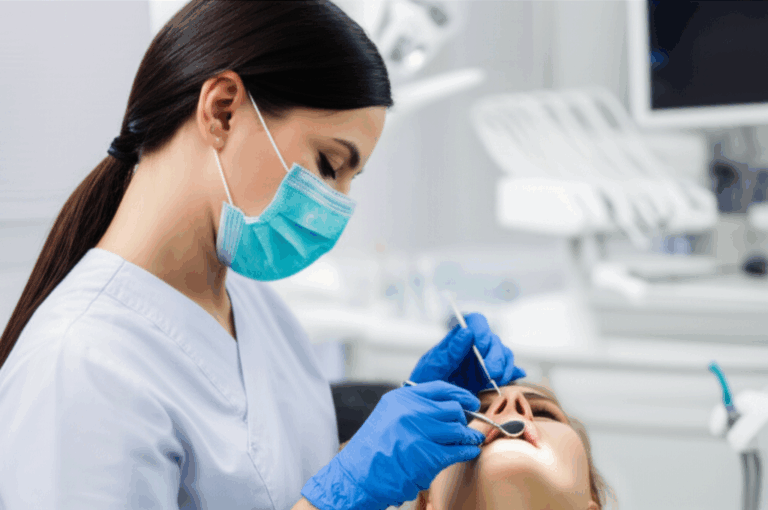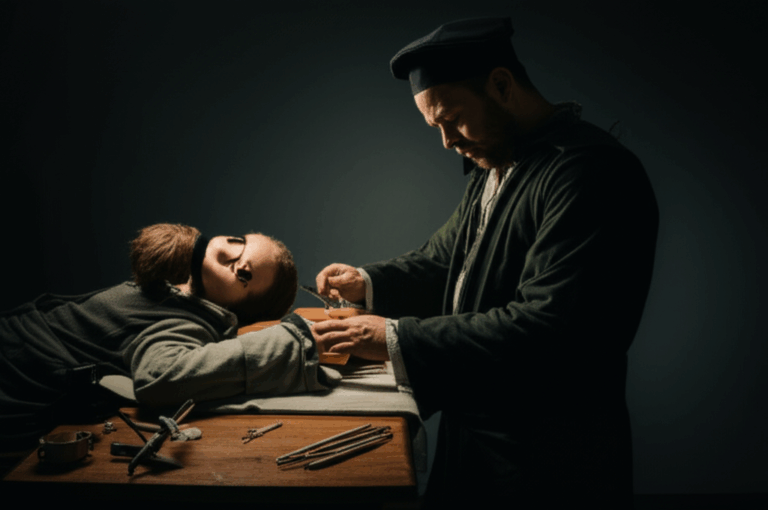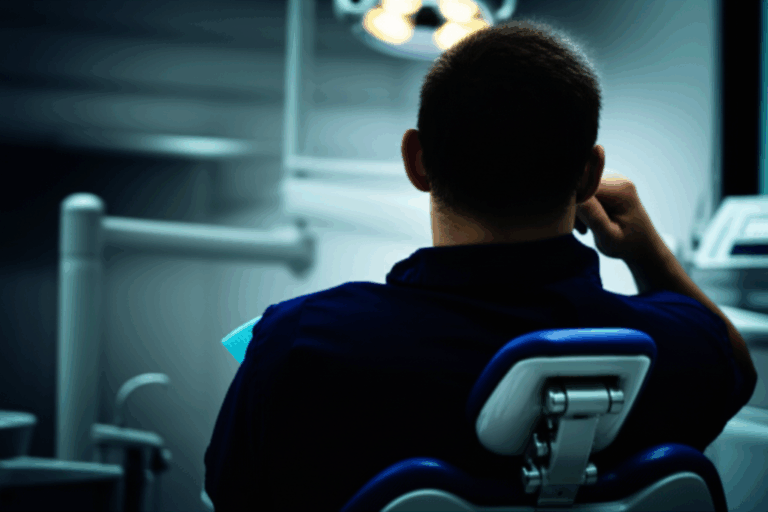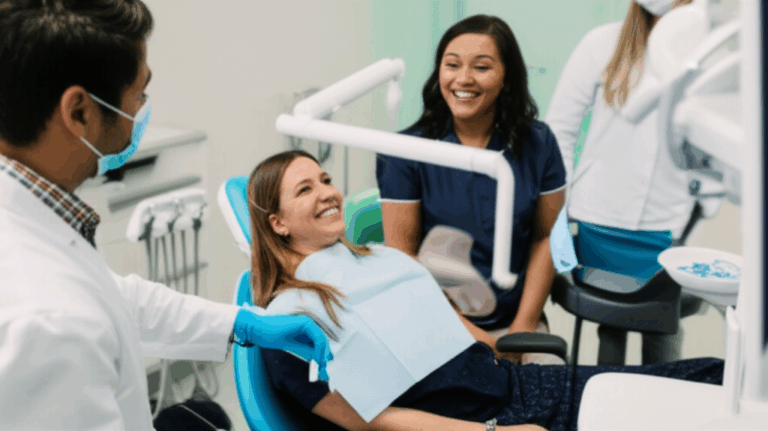
Who Are Dentists? Your Complete Guide to Oral Health Professionals
Dentists keep our smiles healthy and bright, but their work goes way beyond just fixing toothaches. In this article, you’ll find out what a dentist really does, why their job is important, and how they help people of all ages every day. If you’ve ever wondered how someone becomes a dentist or what happens at the dental office, keep reading! This guide will help you understand the big role dentists play in keeping you—and your family—healthy from your teeth to your toes.
Table of Contents
What is a Dentist and Why Should You Care?
Let me ask you a simple question: When was the last time your teeth got a checkup by a professional? If you can’t remember, you’re not alone! Lots of people don’t know all the things dentists do and why their job is important.
A dentist is a special kind of doctor who looks after teeth, gums, jaws, and everything inside your mouth. Some people call them oral health workers or dental doctors. You see dentists in a dental office, hospital, or local clinic. Their main job? To make sure your mouth is healthy, feels good, and works the way it should.
Why should anyone care about dentists? Your mouth isn’t just for eating and smiling. Bad oral health can cause pain, make eating or talking hard, and even lead to major sickness—like heart disease or diabetes. A healthy mouth really helps keep your whole body healthy.
What Does a Dentist Do Every Day?
Now you might think: Does a dentist only clean and fix teeth? Not at all. Their day is full of different jobs and solving problems.
Diagnosis and Treatment Planning
Dentists look for problems in your mouth like tooth holes (cavities), gum trouble, or infections. They use X-rays, special mirrors, and cool computer tools to find problems before you even feel them. If they see a problem, they make a simple plan to fix it.
Preventative Care
Dentists do professional cleanings to get rid of sticky stuff (plaque and tartar) even where your toothbrush can’t reach. They give fluoride treatments or special covers (sealants) to help keep teeth strong, especially for kids. Plus, they show you and your family how to brush and floss the right way, and what food keeps your mouth healthy.
Restorative and Minor Surgical Work
Got a cavity? Your dentist can fill it with a simple fix. Lost a tooth? They might suggest false teeth, bridges, or dentures. If a tooth breaks or wisdom teeth are bothering you, dentists can pull teeth or do minor surgery—sometimes with medicines to help you feel calm.
Cosmetic Dentistry
Dentists also help you feel better about your looks. Whitening, veneers, or full smile makeovers are just some things they can do. All of these make your teeth look good and work better too.
Emergency Dental Care
Maybe you fell off your bike or chipped a tooth on a hard snack. Dentists help in emergencies and get you out of pain fast.
For example, when my neighbor’s boy broke his front tooth playing basketball, the dentist fixed his smile right away. That meant less pain, less worry, and no lasting damage.
Why is Oral Health Important to the Rest of Your Body?
Most people think bad teeth only bring toothaches. But did you know your mouth is like a window to what’s going on in the rest of your body? It really is!
Gum disease can affect your heart, lungs, and even your blood sugar. Swelling in the mouth can travel through your bloodstream and make other problems worse. For example, doctors and dentists have found that people with diabetes and bad gum disease have a harder time keeping their blood sugar steady.
During pregnancy, bad mouth health can raise chances of early birth or low birth weight. For older people, mouth problems can make eating hard or even lead to lung infections.
A dentist helps protect much more than just your teeth—they help keep your whole body healthy.
How Does Someone Become a Dentist?
You might not know just how much learning dentists need.
Education Requirements
First, someone who wants to be a dentist goes to college, mostly taking science classes like chemistry and biology. Then, they have to pass a big test called the Dental Admissions Test (DAT).
Next is dental school—usually four more years of tough lessons and hands-on work. Dental students learn all about teeth, gum care, and even the newest dental tools. They practice with teachers who are real dentists, sometimes called DDS (Doctor of Dental Surgery) or DMD (Doctor of Medicine in Dentistry). These degrees both mean the same thing—the name just depends on the school.
Licensure and Continued Learning
After school, new dentists must pass national and state tests. Once they get their license, dentists keep learning with classes every year so they know about the latest treatments and discoveries.
Some dentists study even longer to work in areas like braces (orthodontics), mouth surgery, or kid’s dentistry.
If you like science, health, and helping people, this could be the right job for you!
What Are the Different Types of Dentists?
You might already know a general dentist, but there are other dental experts with special jobs.
General Dentists
These dentists do a little of everything—cleanings, checkups, fillings, and tooth covers (crowns). Think of them as family doctors for your mouth. They take care of most things and send you to a specialist for trickier stuff.
Dental Specialists (What Do They Do?)
- Orthodontists straighten teeth and fix bite problems with braces or clear trays.
- Endodontists handle tooth pain and root canal work.
- Periodontists keep gums healthy, treat gum disease, and put in dental implants.
- Oral pathologists and radiologists study mouth diseases and read special dental pictures.
- Pediatric dentists care for kids and teens.
- Prosthodontists make things like false teeth, crowns, and bridges.
- Oral surgeons do tougher surgeries—like pulling wisdom teeth or fixing jaw injuries.
- Public health dentists work with whole communities, teaching about mouth care and helping people who can’t always visit a dental office.
Some dentists use outside labs or even a china dental lab for making things like implant teeth or special mouthguards.
If you need someone with special know-how, ask your dentist for advice.
Who Works With Dentists in the Dental Office?
Dentists don’t work alone. Every healthy smile takes a whole team.
- Dental hygienists clean teeth, take X-rays, and teach you how to keep your mouth healthy.
- Dental assistants help the dentist during visits and handle tools or schedules.
- Dental lab technicians build dental crowns, bridges, dentures, retainers, and more. Some work in special labs like a dental ceramics lab or an implant dental laboratory.
- Receptionists or office helpers make sure your visits are set up and welcome you with a smile.
This group works together to make your visit easy, safe, and even fun.
How Can a Dentist Improve Your Smile?
Everyone wants a great smile. But what if your teeth have problems?
Problem
Maybe your teeth are yellow, crooked, have gaps, or are missing. Maybe you cover your mouth when you laugh or don’t want to be in photos.
Agitate
Being upset about how your teeth look isn’t just about looks. It can make eating hard, talking tougher, and make you feel bad about yourself. If you don’t take care of small problems, they can turn into big, painful ones—affecting how you feel every day.
Solution
Dentists now have lots of new ways to fix smiles. Tooth whitening, crowns made just for you from a crown and bridge lab, or lifelike veneers from a veneer lab are just some of the options. Missing teeth can be replaced using pieces made in an implant dental laboratory.
Plus, dentists show you how to care for your new smile—so it lasts a long time.
Let’s be honest: everyone should feel good about their smile! Dentists know just how to help.
How Do I Choose the Right Dentist for Me?
Picking a dentist isn’t the same for everyone. Think about where they are—do you want someone close to your home or school? Next, check if the dentist takes your insurance.
Maybe you need something special—like invisible braces, dentures, tooth implants, or care for kids. Look at patient reviews and ask friends for tips. If you get nervous, find a dentist who helps you feel relaxed and answers your questions.
Many dentists use good labs that make top-quality dental work, like a trusted digital dental lab. Working with these labs means your new teeth or fixes last for years.
Most important? Pick a dentist you trust—and see them often!
What Happens If You Skip Dental Visits?
Let’s see what happens if you don’t take care of your teeth.
- Cavities get bigger and hurt more.
- Gum problems start and can turn into bleeding, sore gums—or losing your teeth.
- Small problems can turn into big, expensive emergencies, sometimes needing teeth pulled or surgery.
Skipping checkups means you could miss early signs of big problems, like mouth cancer or health clues that dentists can spot before you even notice. Dentists know how to find problems you can’t see or feel yet.
Once, I waited too long to see my dentist and my small cavity turned into a big one—so I had to go more times, spend more money, and sit in the chair longer. Don’t make my mistake!
Frequently Asked Questions About Dentists
Q: What’s the difference between a DDS and a DMD?
A: Both are dental degrees. DDS means Doctor of Dental Surgery; DMD means Doctor of Medicine in Dentistry. They learn the same things—the name just changes between schools.
Q: How often should I see my dentist?
A: Most people should get their teeth checked every six months, but your dentist might ask you to come more or less often.
Q: Can dentists give medicine?
A: Yes—dentists can give out antibiotics, pain tablets, and other needed medicine.
Q: Is dentistry a good job?
A: Dentistry is a well-liked job that helps people every day. Dentists use their hands, learn about science, and build good bonds with people. Plus, dentists will always be needed.
Key Takeaways: What You Need to Remember
- Dentists are trained health workers who look after your teeth, gums, and mouth.
- They stop, find, and fix many mouth problems—from easy cleanings to tough surgeries.
- Dentists help keep your whole body healthy, not just your mouth.
- Dentists need lots of schooling: college, dental school, and maybe more.
- Dental health is a team effort. Hygienists, assistants, and lab techs all work together.
- New dental care means anyone can have a better smile, from whitening to real-looking tooth fixes.
- Finding the right dentist gives you better care and a happier smile.
- Missing visits can cause bigger troubles—and more pain.
- A strong, nice-looking smile gives you more confidence and joy every day.
If you want more simple tips for taking care of your teeth or learning how dental labs help your dentist, check out this practical guide or read more about what a dentist does today.
This article was checked by Dr. Joe Dental, DDS, a dentist who helps families get healthy, happy smiles every day. If you need special products, new tooth repairs, or want to learn how labs support your dentist, just ask your dental team!








